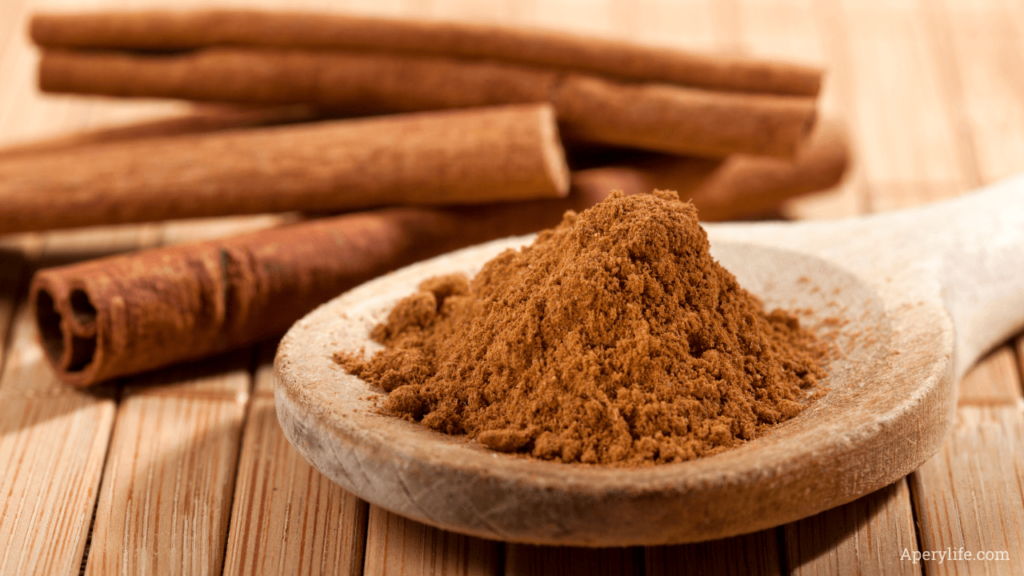Introduction
Cinnamon is one of the world’s oldest and most beloved spices, characterized by its sweet and spicy aroma. Derived from the inner bark of trees in the Cinnamomum genus, it is appreciated both in cooking and for its numerous health benefits. From desserts to savory dishes, cinnamon adds its unique flavor to many culinary creations and is an important ingredient in traditional medicine.
Origins and History
Cinnamon boasts a millennia-long history: it was already known in ancient Egypt, where it was used for embalming and as a luxury spice. During the Middle Ages, it was so precious that it was offered as a gift to kings and emperors. Today, the main varieties of cinnamon are:
- Ceylon Cinnamon (Cinnamomum verum): Known as “true cinnamon,” it originates from Sri Lanka and is considered superior due to its sweet and delicate flavor.
- Cassia Cinnamon (Cinnamomum cassia): Native to China, it has a stronger and spicier flavor and is the most common and affordable variety.
Nutritional Properties and Health Benefits
Cinnamon is much more than a simple spice: it is rich in bioactive compounds that provide numerous benefits to the body. Key benefits include:
- Natural Antioxidant: Contains polyphenols and other antioxidants that combat free radicals and protect cells from aging.
- Blood Sugar Regulation: Cinnamon helps improve insulin sensitivity, aiding in the regulation of blood sugar levels.
- Anti-inflammatory Properties: Its compounds help reduce chronic inflammation and strengthen the immune system.
- Digestive Support: Aids digestion, reduces bloating and nausea, and may soothe stomach discomfort.
- Antibacterial and Antifungal: The essential oils in cinnamon have antimicrobial properties that combat bacteria and fungi.

Culinary Uses
Cinnamon is an incredibly versatile spice that can be used in sweet and savory dishes, as well as beverages:
- Desserts and Sweets: A key ingredient in recipes like cakes, cookies, muffins, and creams. Its flavor pairs perfectly with apples, pears, and pumpkins.
- Hot Beverages: Ideal for enriching tea, coffee, hot chocolate, and mulled wine, adding a warm and spicy note.
- Savory Dishes: In many Middle Eastern and Indian cuisines, cinnamon is used to flavor meat, rice, and curry dishes.
- Spice Blends: A fundamental ingredient in blends such as garam masala, ras el hanout, and pumpkin spice.
- Preserves and Sauces: Can be used to flavor jams, chutneys, and sweet-and-sour sauces.
How to Grow Cinnamon
Growing cinnamon requires specific climatic conditions, but it is possible in tropical regions or controlled environments:
- Climate and Location: Cinnamon thrives in warm, humid climates with temperatures between 20°C and 30°C. It prefers full sun or partial shade.
- Soil: Prefers well-drained, nutrient-rich soil.
- Planting: Cinnamon plants can be grown from seeds or cuttings. It is important to leave enough space between plants to promote growth.
- Care: Requires regular watering without waterlogging. To obtain high-quality bark, branches must be pruned regularly.
- Harvesting: The bark is harvested from the young branches of the tree, dried, and rolled into the characteristic cinnamon sticks.

Interesting Facts About Cinnamon
- Symbol of Luxury: In the past, cinnamon was so valuable that it was used as currency.
- Therapeutic Aroma: Cinnamon essential oil is often used in aromatherapy to relieve stress and fatigue.
- Long Shelf Life: Cinnamon sticks retain their aroma much longer than the powdered version, making them ideal for extended use.
Usage Precautions
Cinnamon is safe when consumed in moderate amounts, but excessive consumption, especially of the Cassia variety, can cause side effects due to its coumarin content. It’s important to use it sparingly, particularly for those with liver conditions or who are taking specific medications.
Conclusion
Cinnamon is a fascinating spice that combines a unique flavor, rich history, and numerous health benefits. Whether enriching a hot beverage, flavoring a dish, or adding a spicy touch to a dessert, this spice deserves a special place in every kitchen.
All rights reserved © Copyright Aperylife.com